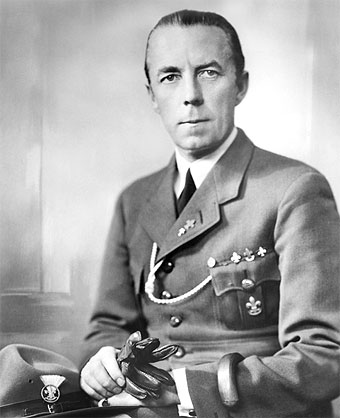Currently, when Sweden and Finland break with a centuries-old tradition of neutrality, it is interesting if that neutrality has been such throughout history, or is, like so many issues, a legend.
Let us examine the case of Sweden.
At the beginning of the Second World War, Sweden declared itself neutral the 1th September 1939. However, while the war lasted, Sweden carried out various actions that distanced it from neutrality, sometimes in favor of Germany, sometimes in favor of the allies. But the most serious was in favor of the Germans. Aid to the Germans mainly consisted of providing them with various raw materials, especially iron, and allowing the passage of their troops to Finland, which was an ally of Germany in the fight against the Soviet Union and which collaborated in the siege of Leningrad where hundreds of thousands of Russian civilians, elderly, women and children, died because of that siege.
 |
| Sweden in WWII |
The biggest point concerning Swedish support for the Axis Powers, was the iron ore trade. Germany used this ore in its weapon production, and trade form Sweden to Germany eventually became so large that ten million tons of iron ore per year was to the Third Reich. The government did not interfere with the trade because of its official policy of neutrality. British intelligence had identified German dependency on this production of ore, and estimated that Germany’s preparations for war could end in disaster if there were to be a delay in exports. Of course this iron was for German weapons.
 |
| Ernst Linder Commander Swedish Volunteers |
Another point regarding support for the Axis Powers in WW2 concerns Operation Barbarossa, the German plan to invade the Soviet Union in the summer of 1941. The Germans asked the Swedes to allow German armed forces to be transported by train through Swedish land, from Norway to Finland. There was huge controversy surrounding what the government should do, and the political debates around the issue became known as the ‘Midsummer Crisis.’ This was the first point in the war where the Swedish government itself, as opposed to simply the people, was asked to reject its foreign policy of six hundred years. In the end, permission was granted to Germany, and thus, the Swedish government showed opposition to its country’s long-held foreign policy.
 |
| Swedish Volunteers |
The actions in favor of the allies were much smaller, but one stands out for its humanity, which is giving refuge to the Jews who escaped from Denmark and other countries, and the actions of some Swedish diplomats who helped save Jews within the countries occupied by Germany. like Hungary. Diplomats such as Count Folke Bernadotte, who contributed to saving over 15,000 prisoners from concentration camps, Raoul Wallenberg, who saved up to 100,000 Hungarian Jews, and Werner Dankwort, who secretly helped Jewish children to escape to Sweden inside wooden crates, were able to use their statuses to communicate with the German government and pass information back to Sweden.
 |
| Count Folke Bernardotte |
German telegrams passed through Swedish-leased cables, allowing the Swedes to intercept them, and due to Arne Beurling breaking the cypher code in summer 1940, the messages were understood and the Polish resistance movement conveyed these to the Allies. Another example is when the German battleship Bismarck set off to attack the Atlantic convoys, Swedish intelligence informed the British. In addition, Swedish businessmen, diplomats and emissaries actively spied for the Allies in cities such as Berlin.
On June 13, 1944, a V2 rocket being tested by the Germans crashed in Sweden and they exchanged its wreckage with Britain for Supermarine Spitfires. It seems that rarely did the Swedes act altruistically as Churchill said.
No comments:
Post a Comment